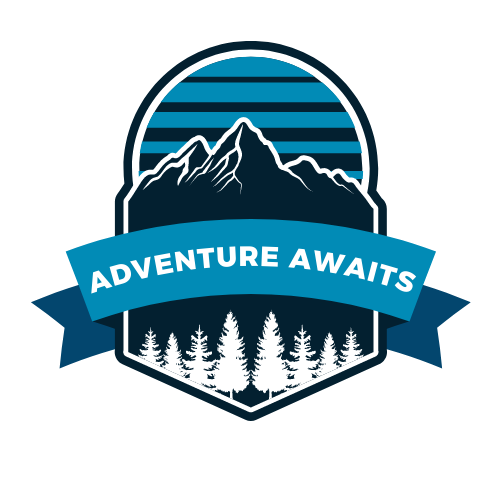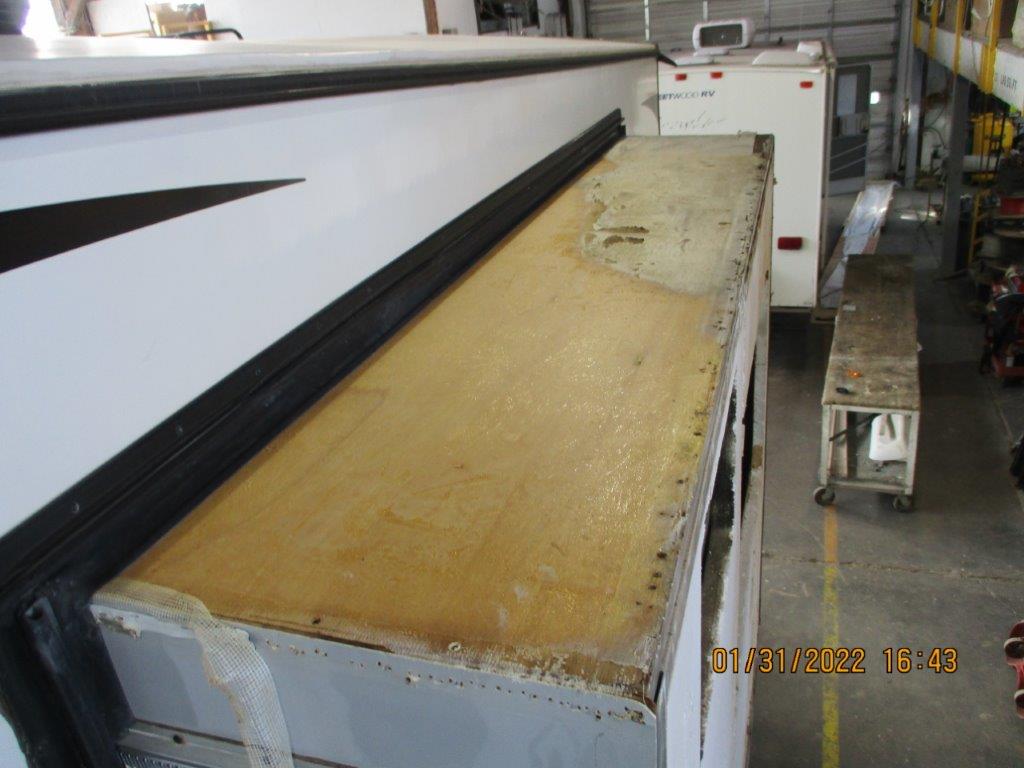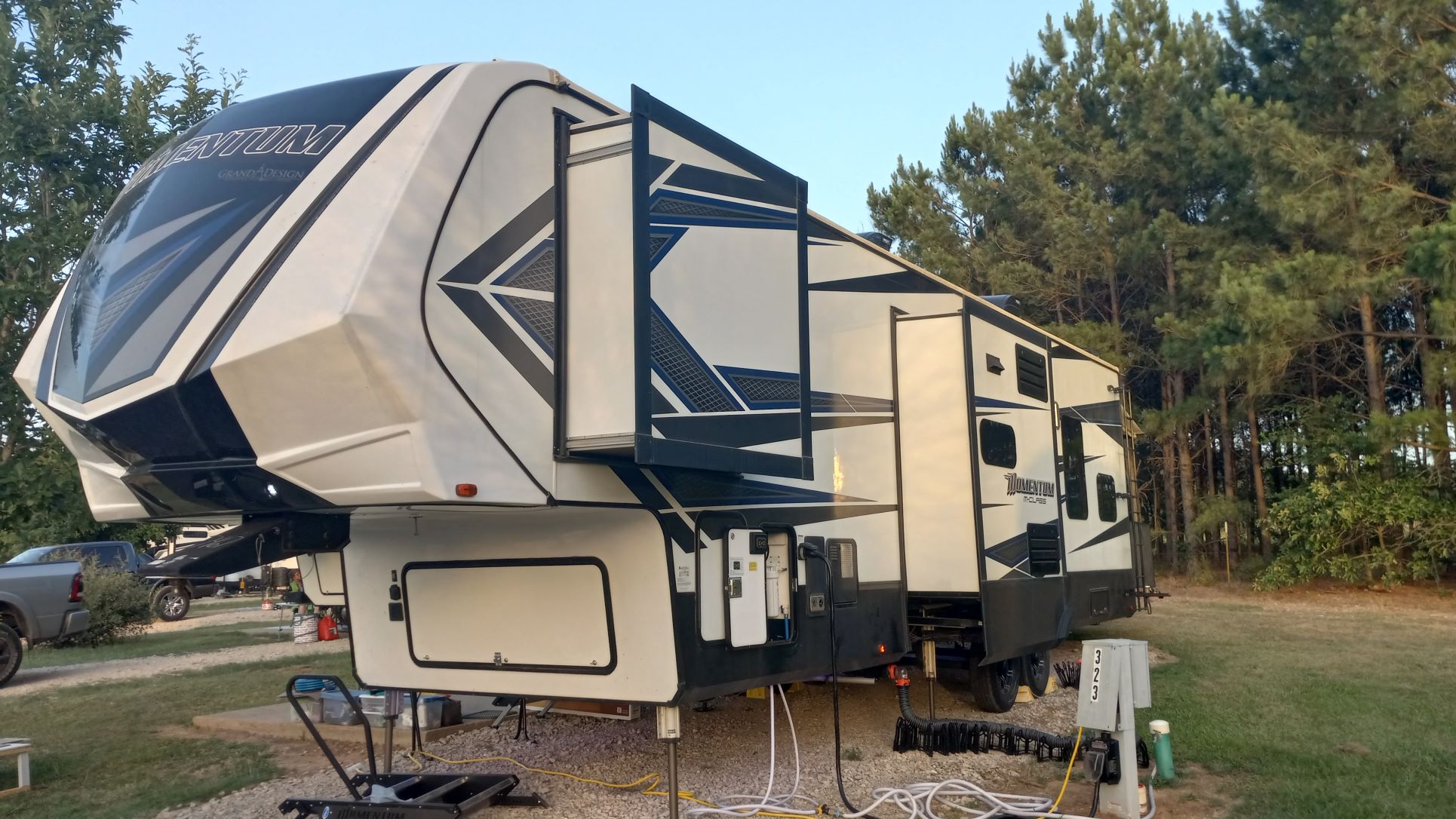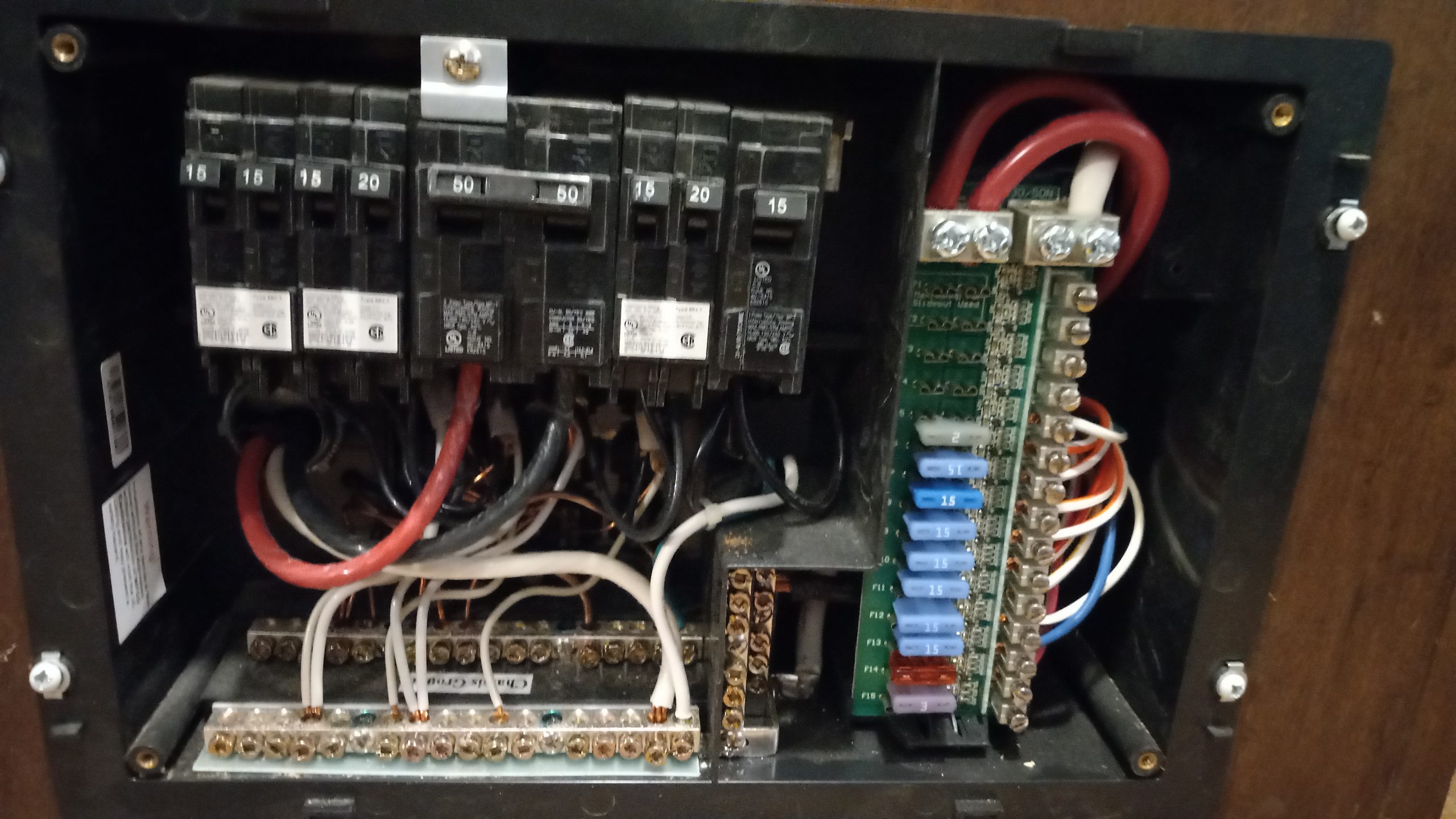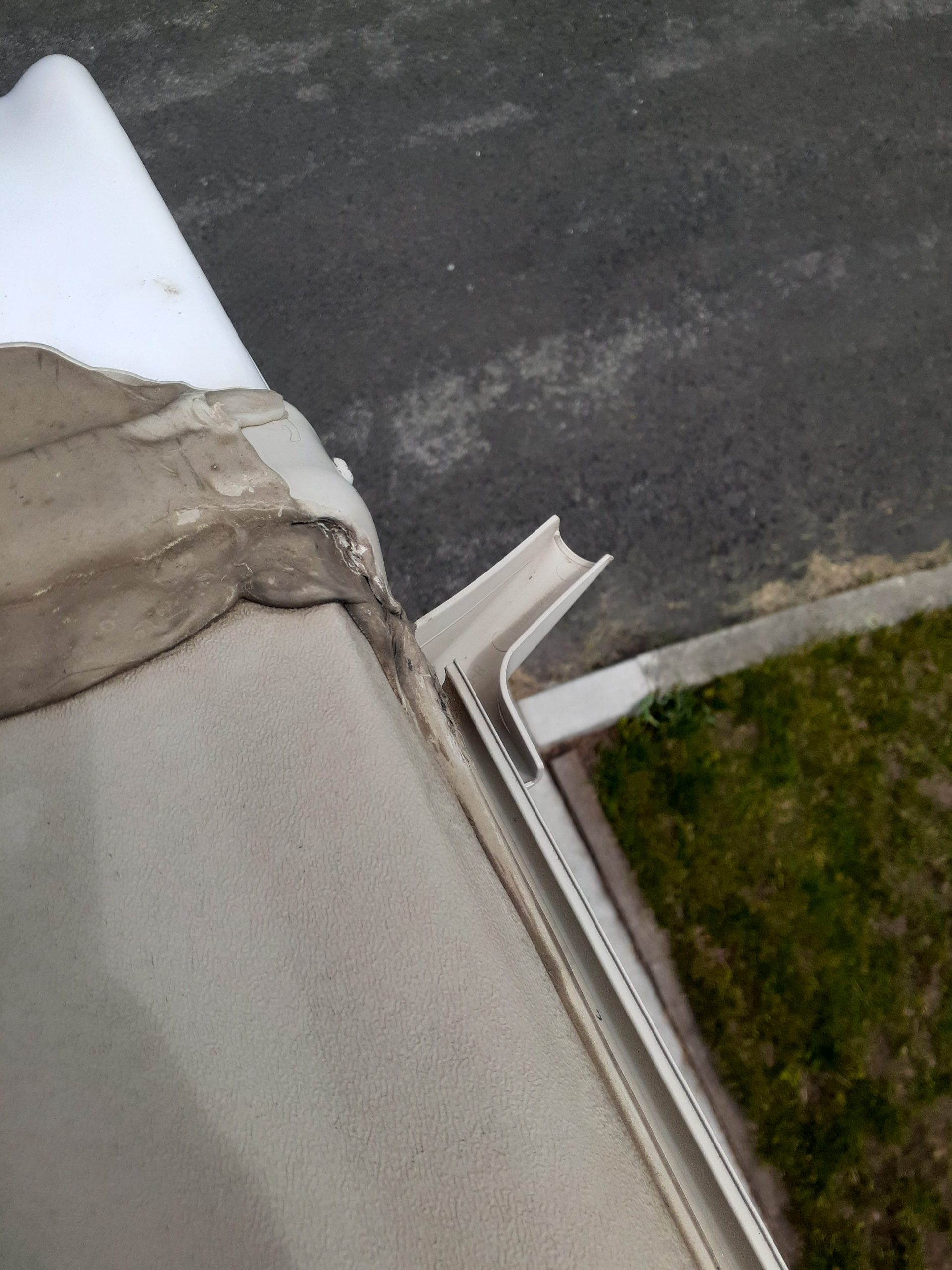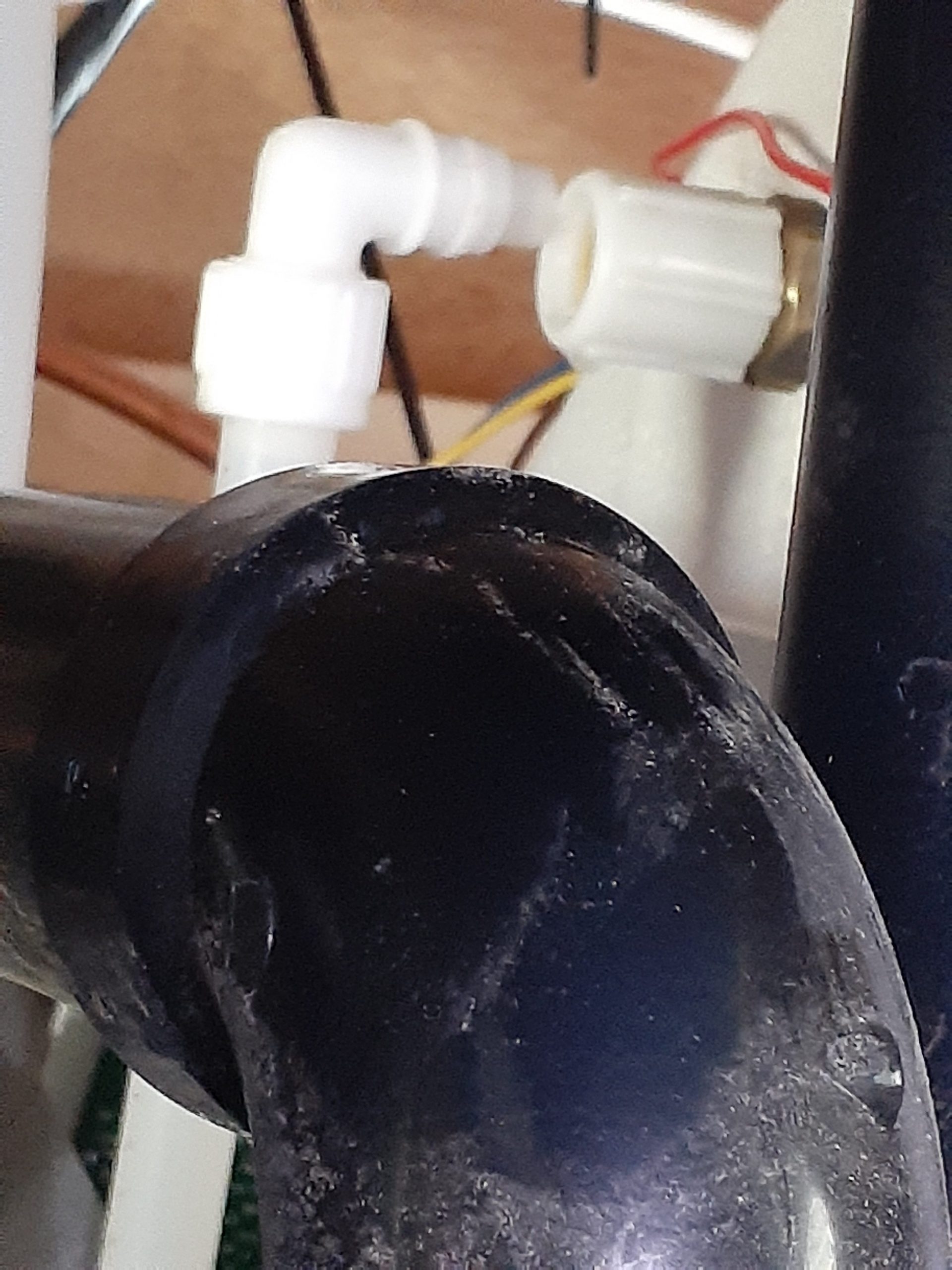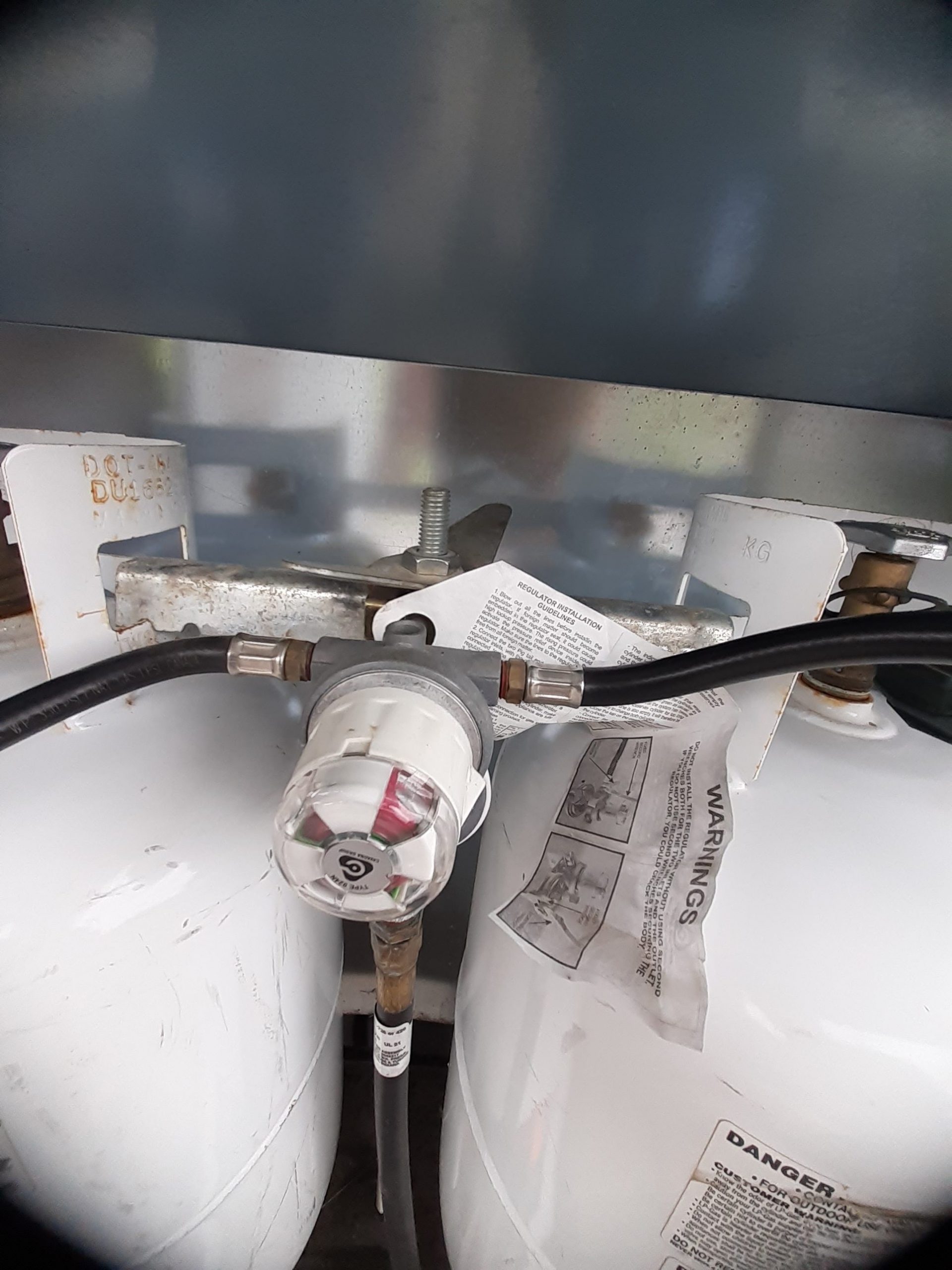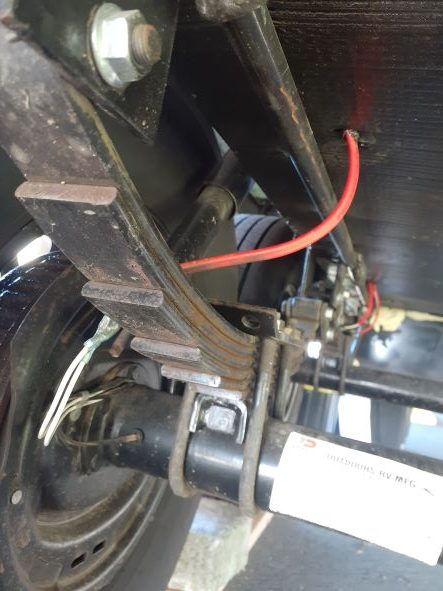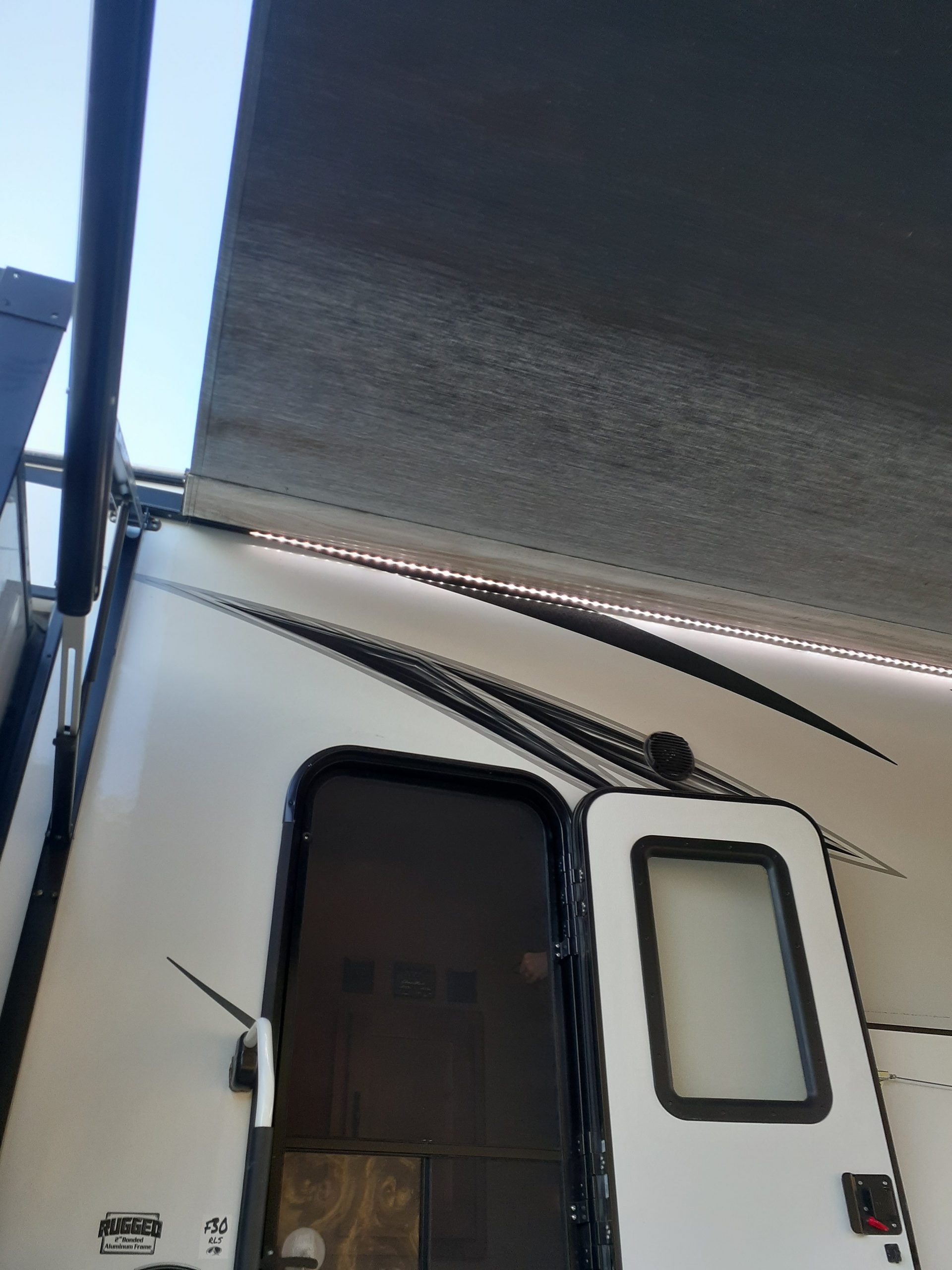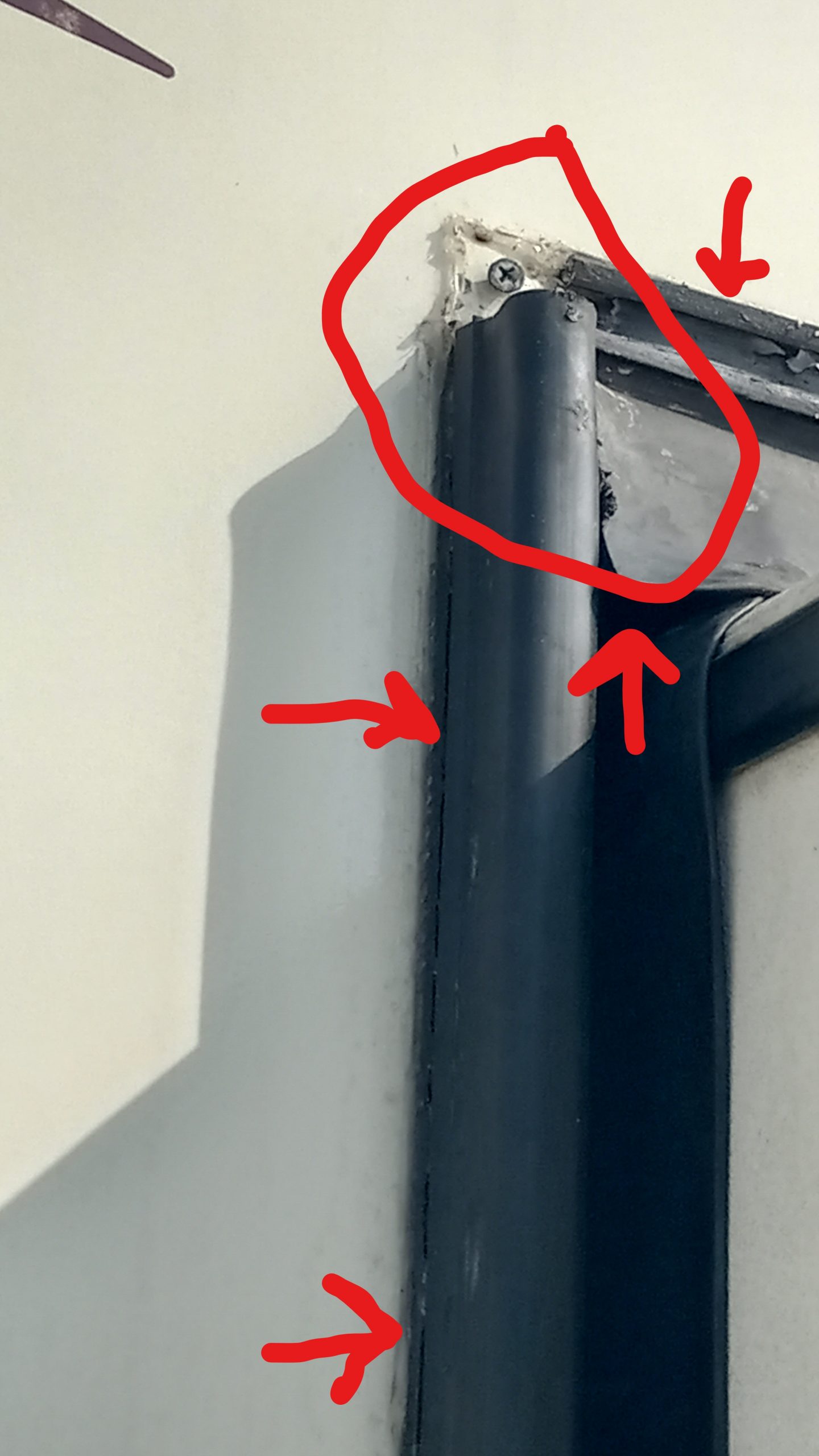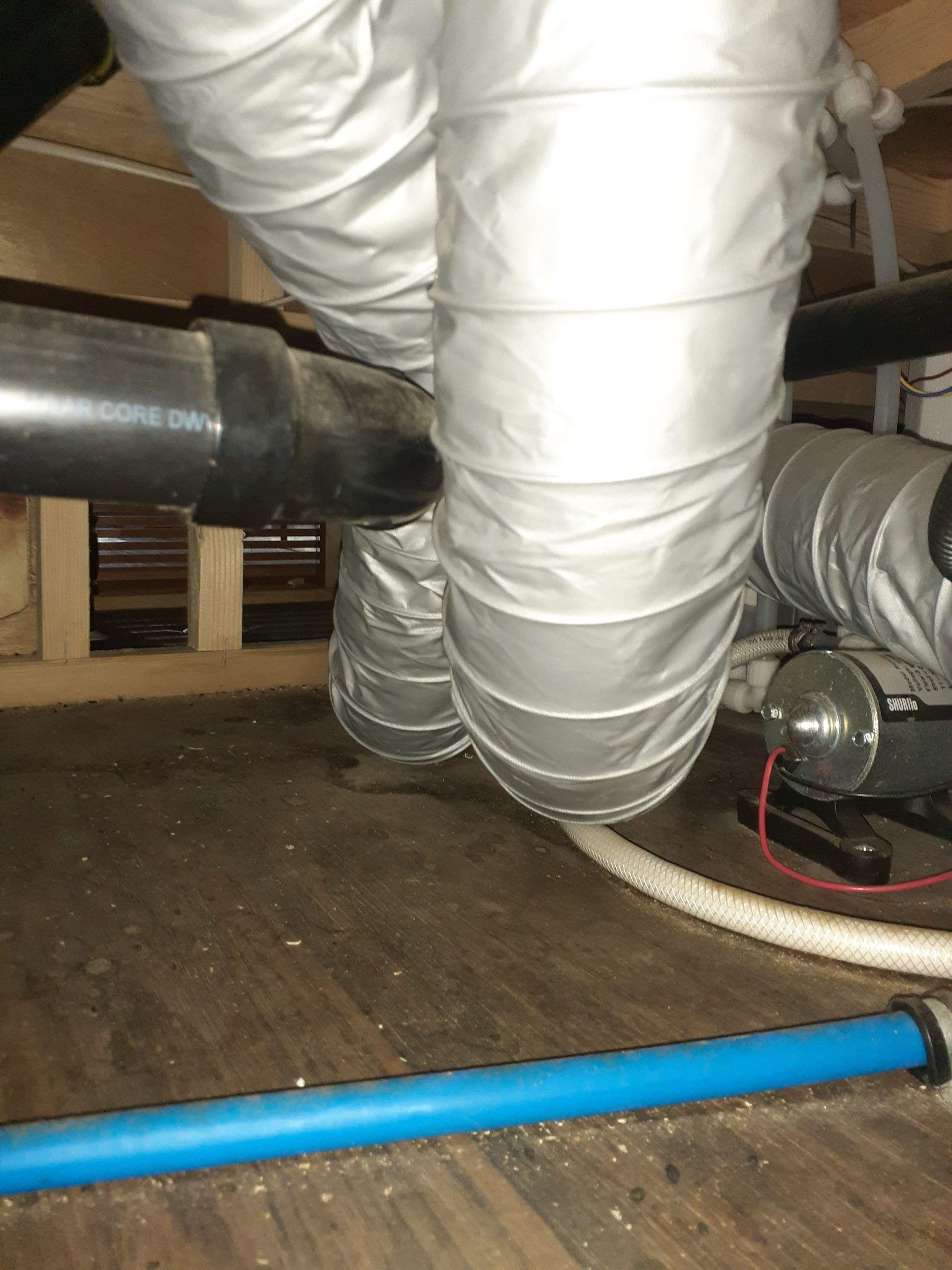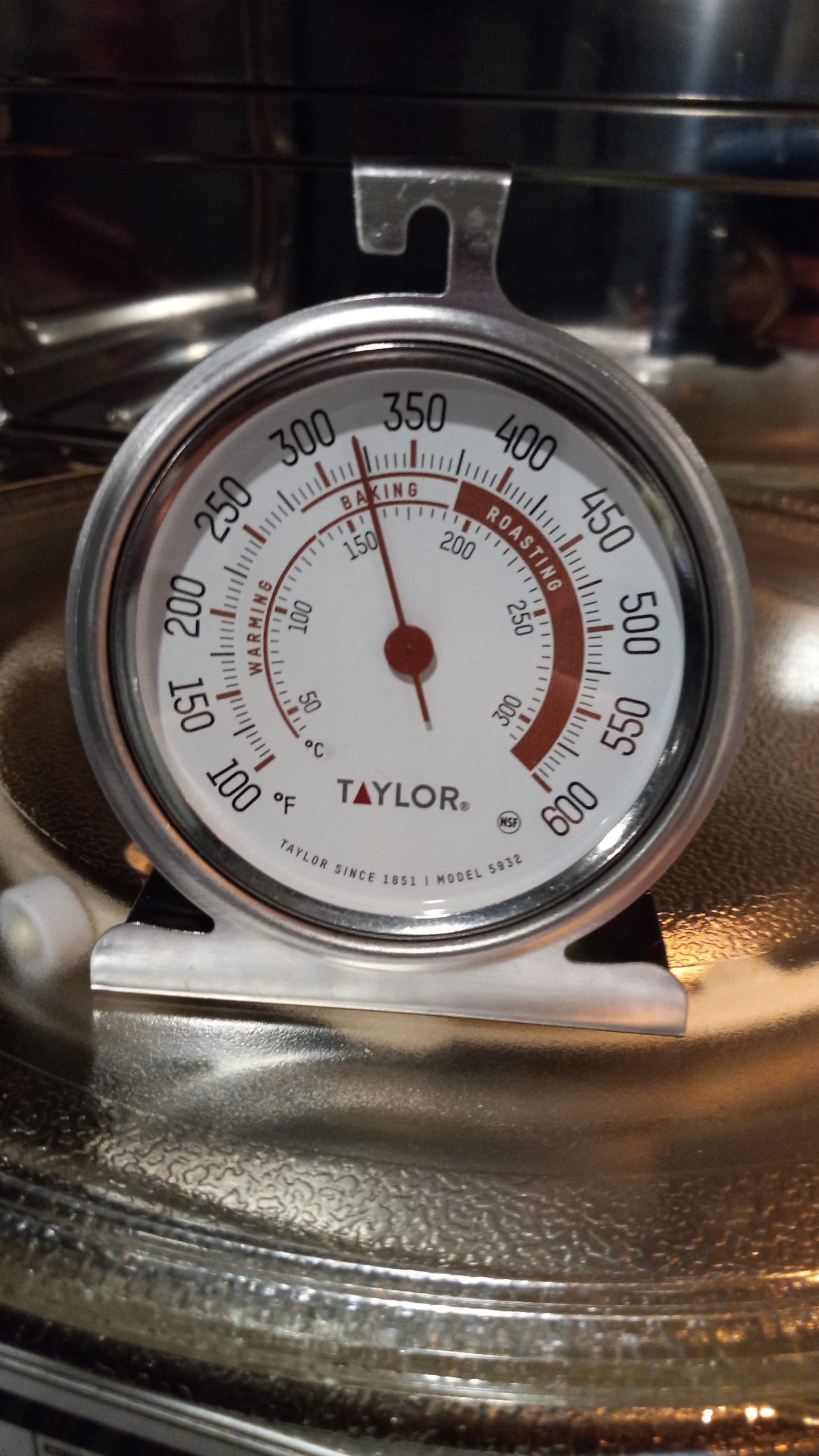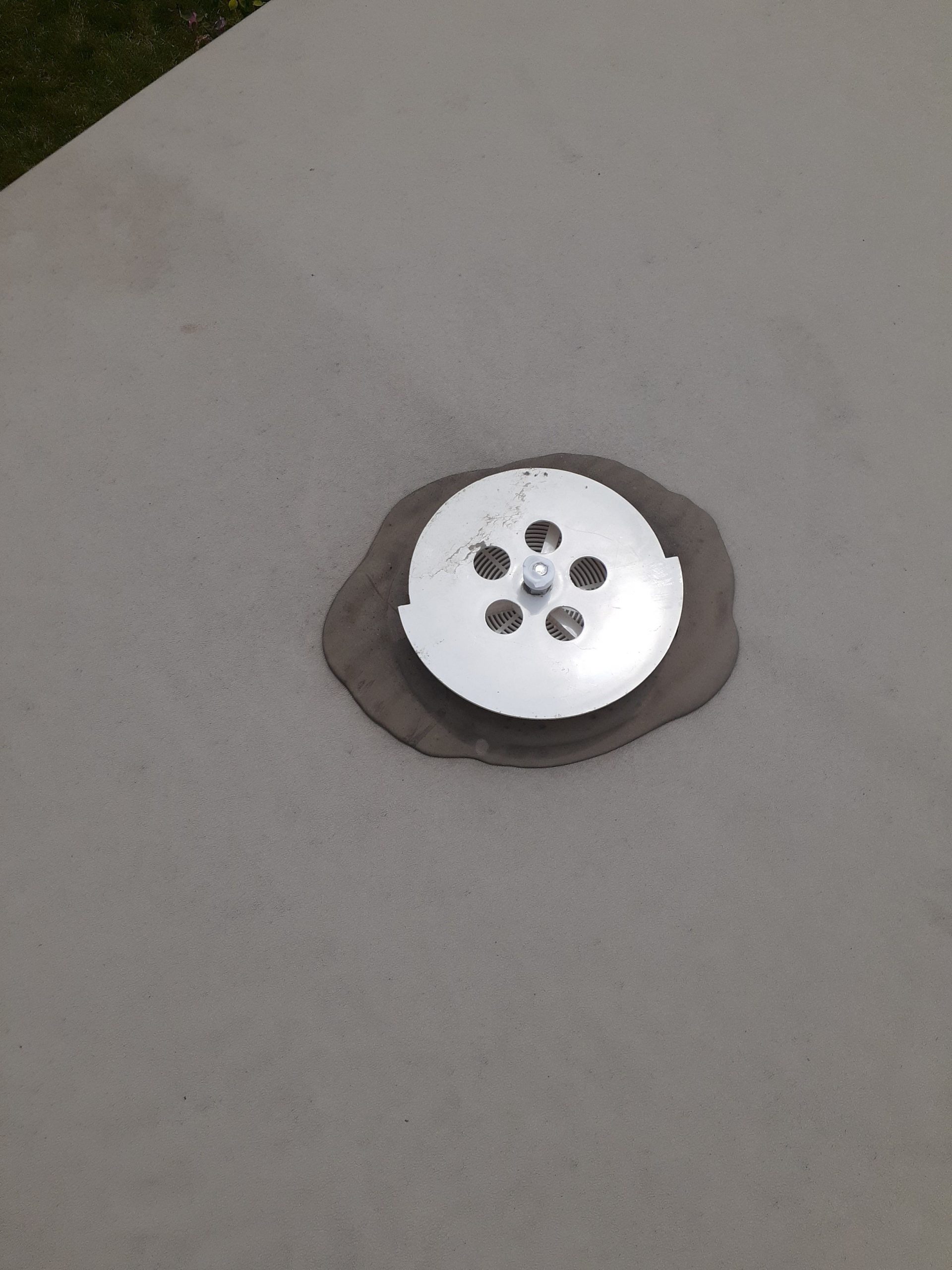Peace of Mind is knowing what you are getting. Moreso, knowing What you are NOT Getting.
Don’t let this happen to you.
- The photo is of roof damage and subsequent complete sidewall fiberglass/luan replacement due to delamination below the roof line elevation. Water goes downhill!
- It was discovered by a simple thing: removing a single screw next to the roofline that revealed rust. Rust usually means “water/moisture.” The roof was not wavy, soft or bubbly. The plywood roofing damage was hidden under the rubber roof membrane. The screw told a story.
Our objective is to identify potential problem areas to reduce the possibility of substantial surprise repairs that can and DO cost thousands of dollars to correct.
Let our experience go to work for you!
RV Inspection Process,Items and Fees
(always check our scheduling in the “Contact Us” page)
What to expect:
- If you are considering an inspection, please be aware that it will take between 6- 8r hours (basically all day) just for the inspection. The report takes additional time to generate.
- Compliment your inspection with Fluid Analysis testing of tow vehicle or Motorhome Oil, Coolant or Transmission or Hydraulic. It is a “blood test” showing the health and wear of those component systems. See our Fluid analysis page HERE. Don’t get stuck with someone else’s problems or lack of maintenance. It is a very smart choice for those who have onboard Generators, Class A, B, C, RV’s , or considering a tow vehicle purchase. Especially used Diesel trucks and RV’s.
What is required?
- The Year, Make, Model, & Vin # of the RV unit provided ahead of time.
All RV dependent mechanical services must be available and hooked up prior to arrival to prevent delays: Propane, Water, Electric and Sewer. If any one of these is not available it may be removed from the inspection (ie, no water means cannot test water dependent systems nor holding tank operation). - Propane tanks are ideally filled at least 1/2 or more to allow for safety checks of propane devices, leak tests of supply lines, and propane dependent appliances. etc.
It may be necessary to have the RV pre-staged at an RV park with full hookups. - Can the client be present at the RV inspection? Yes, we love our clients and share in your excitement to get “adventuring.” However, we prefer you to provide us with any pressing or initial concerns before we get started. Buyers are also welcome to ask questions anytime or during pre-arranged breaks (like taking a break for lunch). The inspections can be exhaustive (especially during hot weather) and being distracted adds to the overall time. We take your inspection very seriously.
- Absorption type refrigerators must be on and functioning for a period of 12 hours prior to inspection to assess it is functioning as intended.
- All inspection fees are paid upfront to hold your date and prior to arrival at the inspection. You are essentially reserving an entire business day for the inspection. The entire business day is lost and we cannot recover it if you cancel the appointment for any reason.
- RV Inspection and Fluid Analysis Refunds are not provided but we can certainly accommodate you at no additional cost for a future inspection within 2 mos. of your initial ordered appointment, subject to the RV being the same class and substantially the same equipment. If you cannot find another RV for inspection within 2 mos. you can receive 10% off an future inspection, subject to the RV being the same class and substantially the same equipment as the original ordered inspection, within 1 yr. of your original ordered inspection.
- Fluid Analysis Refunds (not part of an inspection): No refund. Once ordered we incur up front out of pocket expenses and in-bound and out-bound shipping costs, not to mention our time and travel.
Fees
- Minimum Life & Safety inspection only fee is $595 and up depending upon where we are required to travel to (trailers–not toy haulers). Full formal inspections for dual axle trailers (Toy haulers are more) start at $875 and go up quickly. Inspecting a large Class A Motorhomes with Fluid analysis can cost $1000 or more (not including any travel or overnight reimbursement). Your inspection fee is based upon the class of RV, length and equipment, number of slideouts on the unit–they are ALL different. Inspectors have been hired to perform inspections out of State including us. The range is large because RVs come in different sizes, lengths and uses (think Toy Hauler, Boondocking, Full time, etc). They also have different features, different systems and components so there is no “one size fits all.” We will provide you a firm quote. Our formal written report inspections (excluding Scouting Evaluations, on-site RV consult sessions, “getting to know you RV” and maintenance services where reports are not provided) will NEVER EXCLUDE the Life/Safety Points of Inspection such as inspection for propane leaks, egress exits from doors and windows, alarms for fire, carbon monoxide, Propane, fire extinguishers, or “hot skin” testing.
- Fluid Sampling (Class A, B & C diesel engine , diesel tow vehicle trucks and onboard generators). Fees do vary depending upon the number of components you would like lab analysis for (typically two or three). Fees ranges from a low of $300 and up which includes shipping and lab analysis. UPS expedited shipping is available but shipping fees are steep. If you are considering a tow vehicle diesel truck it would be wise to obtain fluid samples for laboratory evaluation. Why? Think of it as a “blood test” for your RV or Tow Vehicle. With today’s tow vehicle trucks sometimes exceeding $75,000 and even $100,000 for higher end diesel 1 ton trucks, buyers should protect their investment by understanding how the engine is performing, including transmissions (ie, Allison & Aisin) and cooling systems. Fluid sampling fees are additional to the Inspection and will be included in the final proposal to you. Oil, Transmission, Coolant & Hydraulic Lab analysis is provided by JG Lubricants in Salt Lake City, UT or Indianapolis, Indiana.
General Inspection Components
This is a basic list of possible inspection areas and not at all exhaustive. Every inspection is different. This is informational only and not to be construed as identical to your inspection ordered. It won’t be.
Electrical: 12VDC & 120VAC (as applicable)
Exterior: Front to back and everything in between that is riveted, bolted, screwed, fastened, adhered, attached or hinged or penetrated through (slideouts, mechanical and more).
Frame & Running Gear: Tires, suspension, rust, and more.
Roof & Components: Roof membrane condition. All joints & seals, from roof to sidewalls to skirting joints, front to rear.
Heavy emphasis on all points where water intrusion can negatively impact the structure inside and out and components.
A/C, Hot Water Tank, Refrigerator, Furnace & other applicances as applicable.
Plumbing & waste and grey water holding tank systems/operation.
Interior: Ceiling to floor and end to end including all components, A/C Delta T temp testing, bath & kitchen fixtures, appliances, cabinets, electronics, lighting, controls, furnishings and more.
Life/Safety (RV "hot skin test," egress Emergency exits, propane leak checks, alarm systems, etc)
A “hot skin” test is performed at the onset of every inspection. If it is determined that any Voltage expressed as over 5 Volts using a Fluke or other brand voltmeter, we may stop the inspection in its tracks until the condition is corrected. A hot skin test determines whether there is errant Voltage across the RV metal surfaces commonly in contact with people: metal stairs, metal handrails, metal clad entry or access doors or windows, chassis frame, etc.
Solar Systems: we do not perform stand alone testing or bench testing of solar battery/power systems or their components, installation worthiness/workmanship or operation. They are complex with highly specialized equipment, charging and power storage solutions. They are out of the scope of the inspection. Contact your RV specialized Solar dealer or qualified installer for questions about the suitability of your pre-installed system or future solar plans for your RV.
Curious to see EVERYTHING we inspect?
Click HERE to see the Standards of Practice at the NRVIA (National RV Inspectors Association).
Contact us for an appointment today: service@soundrvinspections.com or call 425-344-1206

